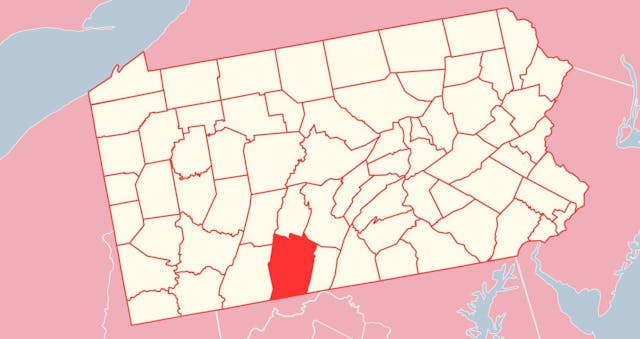Rehabs in Bedford
Bedford County is situated in the state of Pennsylvania, in the US. It was established on March 9, 1771.
Substance use disorder is overspread in this province. Deaths from drug overdoses are increasing year by year. So, Bedford County rehabs strive to save the lives of individuals by providing comprehensive care.
Drug and Alcohol Evaluation
If someone suffers from a substance use disorder and is looking for a program that works for them, they should undergo an evaluation. Thanks to it, specialists can determine the severity dependence of patients. Then, they examine whether they have mental or behavioral problems simultaneously. Individuals who suffer from such a co-occurring disorder or severe addiction undergo detox and are transferred to inpatient treatment.
Rehab Programs in Bedford County
Rehabs in Bedford County offer all types of programs and services. They serve each member of the community. Even more, they heal residents who do not have the financial means to recover.
Detox
The essential issue of the detox process is managing withdrawal symptoms. Hence, several preconditions apply.
At first, only qualified medical experts have the right to conduct it. Besides, it must occur in specialty facilities where patients must live on-site. Therefore, clinics must have all the conditions for the process to pass safely.
In addition, detox should be comfortable in all respects. Since the participants of this program may have mental and physical difficulties, they should be surrounded by 24-hour care and support.
The process is stressful. So, the use of medicines is a must.
Inpatient (IP)
Medical centers offer adult men's and women's gender-specific units in the intensive program. Both provide a daily plan that encourages a drug-free way of life. During their stay, patients get wide-range treatment, including:
Curing sessions based on facts.
Daily activities.
Care and support.
Group meetings.
In-person therapy meetings where patients and counselors work on goals they set.
After all, they attend mental healing sessions. Here they will learn about chemical dependence as an illness. Lastly, the doctor will help them find what is best for them.
Outpatient (OP)
OP includes several services for mild drug and alcohol addiction.
Individual meeting with a counselor allows for planning recovery objectives and personalized plans. It takes place for one hour per week.
Group therapy meetings enhance communication skills and create support between participants. It takes place from two to eight hours based on the people's needs.
The legal group is designed for those who have existing drug and alcohol accusations and are involved in the legal system.
Family therapy supports persons on their recovery journey. In truth, it treats the wounds of dependence. Family members can make common recovery objectives for the family as a whole.
OP lasts nine hours per week.
Intensive Outpatient (IOP)
OP is designed for those with mild signs of co-occurring mental illnesses. People attend group, individual, and family therapies and counseling.
The sessions take place 10-19 hours a week.
Partial Hospitalization Program (PHP)
PHP is a well-planned and non-residential level of care for those who move from IP or start their recovery from this level. Besides, those who struggled to stay sober but had relapses may find PHP useful as well.
PHP takes place 20 or more hours a week.
Specialty Rehab Services
UPMC-Life Changing Medicine (University of Pittsburgh Schools of the Health Sciences) is a leading clinic treating substance abuse. It offers specialized services for pregnant women and teens who use drugs. Veterans struggling with substance use disorder and those who have survived overdose also have access to this center.
Payment Options Without Insurance
Medical facilities offer financial assistance to patients. This help refers to people who do not have government assistance and have financial needs. So, to be eligible for this program, individuals must submit their family income to the appropriate institution.
Forcing Teens Into Rehabilitation
Pennsylvania is one of the 37 states that allow parents to force their teens into rehab centers. Yet, to solve this problem, specialists offer healing courses for minors. Additionally, public schools have SAT (Student Assistance Teams). Their goal is to aid teens at risk of developing drug and alcohol abuse or mental health illnesses.
In brief, their services allow minors to overcome abuse and avoid substance use.

